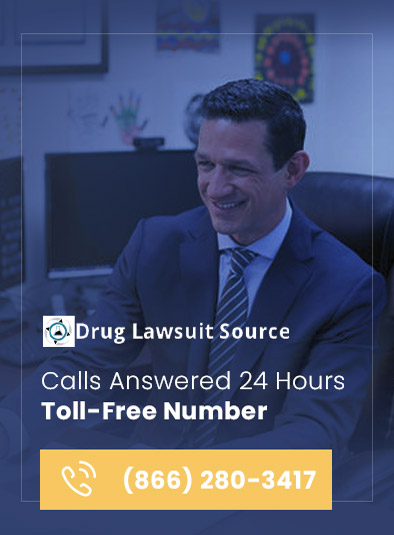Dexilant Lawyer
Update: Drug Lawsuit Source is no longer accepting these cases. We regret we cannot assist you. You may want to contact a law firm in your area to see if they will accept your case.
A Dexiant lawsuit demands compensation for injuries caused by this dangerous drug. Dexilant (Kapidex) is one of the major drugs that constitute the proton pump inhibitor category. Patients who have taken Dexilant and suffered harm have the right to file a claim for damages. Cases have already been filed in the United States due to the links to chronic kidney disease and acute kidney disease.
If you or someone you care about has used Dexilant and been diagnosed with chronic kidney disease, acute kidney disease, renal or kidney failure, or another serious side effect, you may be eligible to file a lawsuit. Contact our dangerous drug attorneys to help you demand justice.
- What is Dexilant and How Does It Work?
- Are Dexilant and Kapidex The Same Drug?
- What Are the Side Effects of Dexilant?
- Does Dexilant Cause Chronic Kidney Disease?
What Is Dexilant? How Does It Work?
Dexilant is a type of medication known as a proton-pump inhibitor (PPI) used to combat the symptoms of frequent heartburn caused by the backup of stomach acid into the esophagus, commonly referred to as acid reflux.
Dexilant (Dexlansoprazole) has a similar function to popular drugs, such as Nexium and Prilosec, as it affects the body by decreasing the amount of acid the stomach is able to produce. In doing so, the esophagus is able to heal from acid exposure which can work to prevent ulcers – sores in the lining of the stomach or intestine – from developing due to acid damage.
In addition to combating acid reflux symptoms, it has been used to treat general conditions in which the stomach is overproducing acid – known as Zollinger-Ellison syndrome.
Is Kapidex The Same Drug As Dexilant?
When Dexilant was initially approved by the U.S. Food and Drug Administration in 2009, it was known as Kapidex. However, within a year of market introduction, Takeda Pharmaceuticals was receiving reports that patients were frequently being given Casodex and Kadian when attempting to acquire their Kapidex prescription.
When this issue was investigated, it was discovered that due to the similarity of the drug names, doctors and pharmacists were giving their clients an incorrect drug – one of which is morphine. In an attempt to reduce the amount of these prescription mistakes, Takeda submitted an FDA request to change Kapidex’s trade name to a distinct name that would not be confused for other drugs.
FDA approval was received in 2010 with Kapidex being referred to as Dexilant from that moment on. While exact figures are unreported, it is estimated that the name change has nearly eliminated occurrences of incorrect prescription acquisitions. Reach out to a Dexilant attorney to understand how this can impact your claim.
Dexilant Side Effects
Dexilant has a variety of common and serious side effects.
Common side effects include:
- Diarrhea
- Abdominal pain
- Nausea
- Upper respiratory tract infection
- Vomiting
- Gas
Serious side effects include:
- Chest pain, fast or pounding heartbeat
- Severe stomach pain
- Diarrhea that is watery or bloody
- Worsening heartburn
- Low magnesium causing dizziness, confusion, muscle weakness, or muscle cramping
Chronic Kidney Disease and Dexilant
Chronic kidney disease (CKD) is a potentially fatal disease where the normal function of the kidney is compromised. Because kidneys extract waste and excess fluid from the bloodstream, dangerous levels of fluids and waste can build up in the body when their function is compromised.
CKD often progresses into end-stage kidney failure, which requires dialysis or a kidney transplant as a treatment.
Studies have shown a link between Dexilant and other proton-pump inhibitors (PPI) use and CKD. In 2016, the Journal of the American Medical Association published a study that found those taking PPIs once daily had a 15% increased risk of chronic kidney disease, and twice-daily users were 46% more likely to develop chronic kidney disease.
The study also found that those who took PPIs had a 39% higher risk of kidney disease than patients who took H2 blockers, a different type of drug used to treat heartburn and acid reflux.
The Journal of the American Medical Association published a study in February 2016 identifying a link between the drug and kidney disease. Over 10,000 participants were studied from a period ranging from 1996 to 2011. According to their findings, the use of proton-pump inhibitors was associated with a higher risk of incident chronic kidney disease (CKD).
Our Dexilant Attorneys Can Help
Drug Lawsuit Source is currently investigating side-effects caused by Dexilant. If you or someone you care about has experienced any of the following while taking Dexilant, please contact us for your free case review:
- Acute kidney injury
- Acute kidney failure
- Chronic kidney disease
- Renal or kidney failure
- End-stage renal disease
Contact us today for your free case review. Our legal team will review your medical records to determine if you have a case. We charge no fees unless we win.
 (866) 280-4722
(866) 280-4722 

